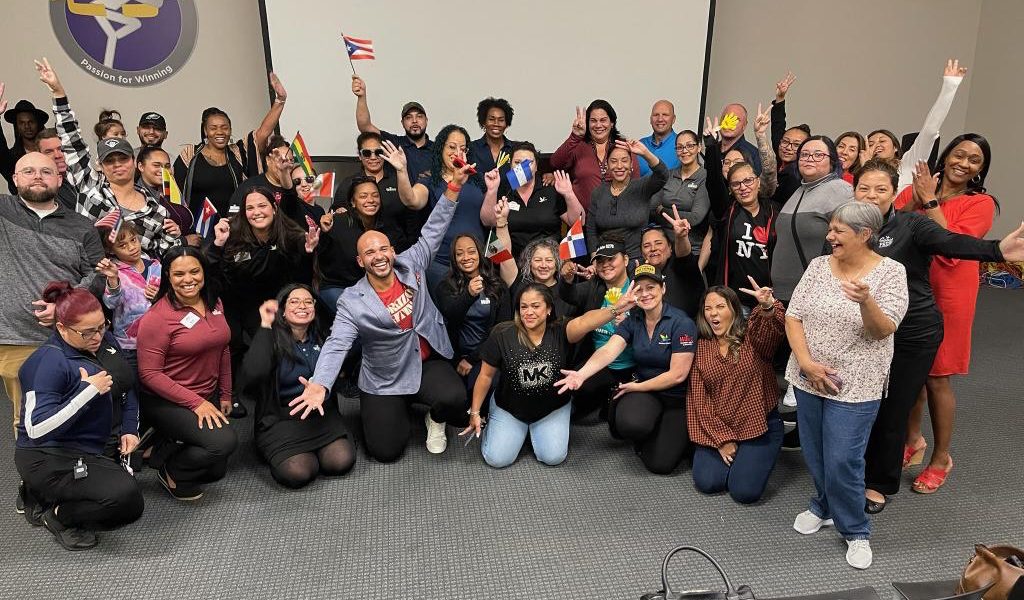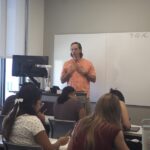Students, faculty and staff can learn how to attract, inspire and retain employees who are Generation Z and Hispanic at a speaker event 6-7:30 p.m. Oct. 27 in the auditorium at Texas A&M University-San Antonio.
The university is hosting “Are You Fluent in LatinX GenZ? Strategies to Go From Great Resignation to Great Recruitment” as part of Hispanic Heritage Month.
“Gen Z is entering the workforce, and organizations cannot play catch-up with this audience,” said Miguel Joey Avilés, global diversity, equity and inclusion keynote speaker, consultant and coach. “We need to get ready with our recruitment retention development practices to make sure we can recruit and retain this critical generation.”
The event, organized by the campus chapter of the Society for Human Resource Management and the University Heritage Committee, is free and open to the public.
Avilés will discuss his “3 E’s” to win over the Hispanic community. He will lead the audience through strategies on how to engage, employ open doors of opportunities and elevate the Hispanic community.
“The audience will leave inspired, walk away with clear tangible strategies that they can apply to improve relationships, and they will leave empowered to elevate someone,” Avilés said. “Sharing is about the human spirit as well.”
Avilés said he connects Gen Z to Puerto Rican rap artist Bad Bunny’s album “YHLQMDLG,” an acronym for Yo Hago Lo Que Me Da La Gana, which translates to “I Do Whatever I Want” in English.
That is an example of Gen Z because this generation is changing the way professionalism looks and also the historical patterns of career paths, Avilés said.
Gen Z is composed of people born from 1997 to 2012, according to a USA Today article. The generation is characterized by low employment stability in their future, but aside from these worries, Gen Z has a higher optimism than the average American for an economically stable life. according to a recent survey by McKinsey & Company.
Gen Z is “creating its own path into what a successful life looks like,” Avilés said. “Gen Z is disrupting what ‘professional’ looks like, disrupting historical patterns of what careers look like.”
The audience can expect to participate in fun games, learn and even shed a few tears while listening to empowering words.
He encouraged students, faculty and staff to become fluent in “human” in the Hispanic community.
“We don’t need to speak Spanish, we don’t need to be the same gender, we don’t need to be the same color from the same town,” Avilés said. “To be fluent in human, there is one requirement, and that is to care.”
The only way to achieve that is by caring enough to understand and engage, Avilés said. It’s essential for anyone no matter the age, race and gender to develop relationships with the Hispanic community.
“Are You Fluent in LatinX GenZ?” has the final purpose of inspiring the listeners enough to spread the message to the world.
For more information, go here or contact Adrian Garza, SHRM student organization adviser, at adrian.guardia@tamusa.edu
LatinX Heritage Month ran from Sept. 15-Oct. 15. For more information about the month’s final event on campus, go here.






